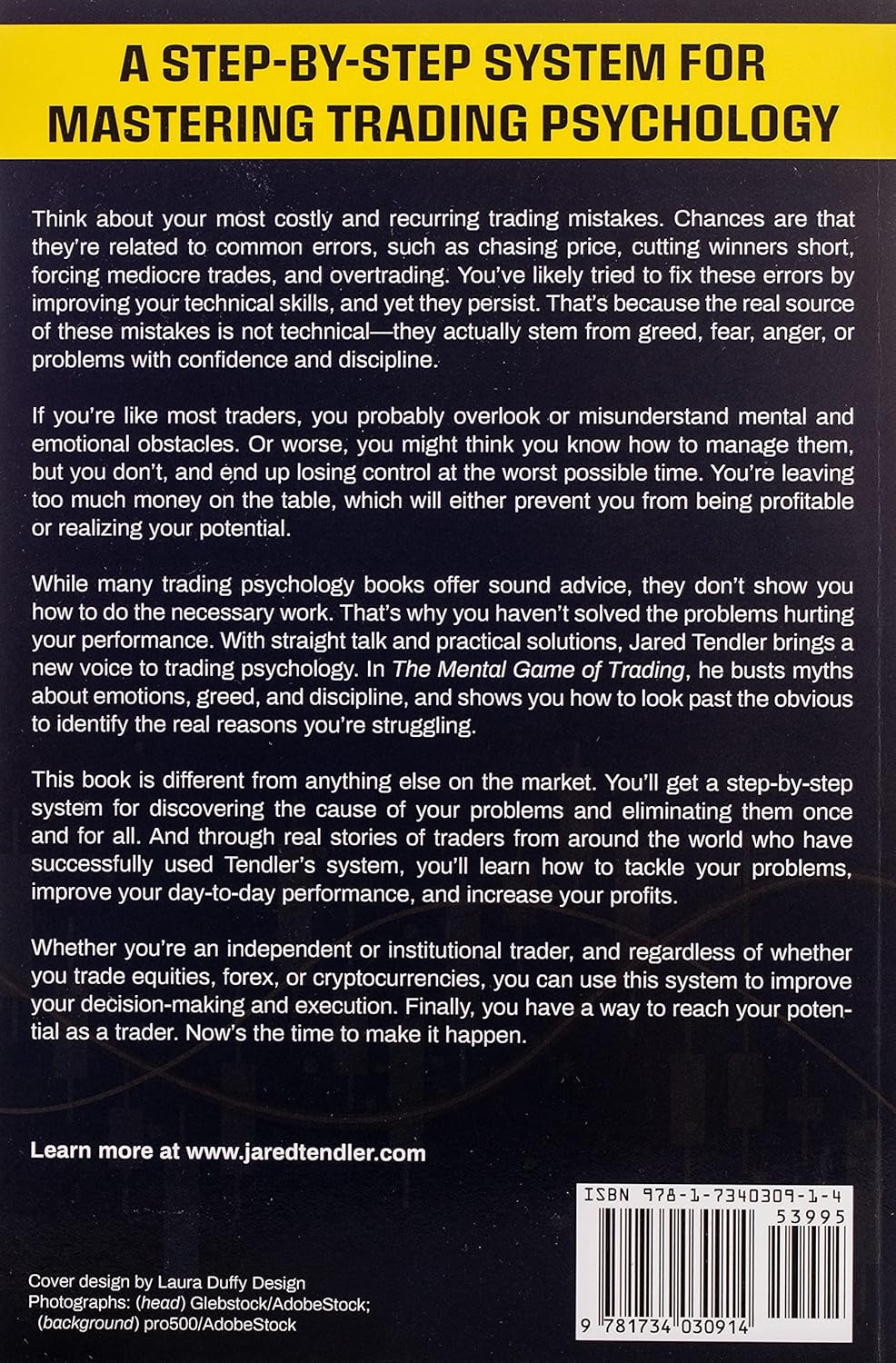Trading Psychology: How to Avoid Emotional Mistakes

- Understanding the impact of emotions on trading decisions
- Common emotional mistakes made by traders
- Developing a disciplined trading mindset
- Strategies for managing fear and greed in trading
- The role of patience and resilience in successful trading
- Seeking professional help for emotional trading issues
Understanding the impact of emotions on trading decisions
Understanding the impact of emotions on trading decisions is crucial for success in the financial markets. Emotions such as fear, greed, and overconfidence can cloud judgment and lead to poor decision-making. When traders let their emotions dictate their actions, they are more likely to make impulsive trades based on short-term fluctuations rather than long-term strategies.
It is essential for traders to recognize when their emotions are influencing their decisions and take steps to mitigate their impact. One way to do this is by developing a trading plan and sticking to it, regardless of how the market is performing. By following a set of predefined rules, traders can avoid making emotional decisions that could result in losses.
Another strategy for managing emotions in trading is to practice mindfulness and self-awareness. By being present in the moment and acknowledging their emotions without acting on them, traders can maintain a clear head and make rational decisions based on analysis rather than feelings.
Ultimately, understanding the role of emotions in trading and learning how to control them is essential for long-term success in the financial markets. By staying disciplined, following a trading plan, and practicing mindfulness, traders can avoid emotional mistakes and improve their overall performance.
Common emotional mistakes made by traders
Traders often fall into common emotional traps that can negatively impact their decision-making and overall performance. It is important to be aware of these mistakes in order to avoid them and improve your trading psychology.
- Overconfidence: One of the most common emotional mistakes traders make is being overconfident in their abilities. This can lead to taking on too much risk or ignoring warning signs in the market.
- Fear and Greed: Emotions like fear and greed can cloud judgment and lead to impulsive decisions. It is important to stay disciplined and stick to your trading plan.
- Loss Aversion: Traders often have a tendency to hold onto losing trades for too long, hoping they will turn around. It is important to cut losses quickly and move on.
- Confirmation Bias: Seeking out information that confirms your existing beliefs can lead to poor decision-making. It is important to remain open-minded and consider all perspectives.
- Emotional Attachment: Becoming emotionally attached to a trade can cloud judgment and prevent you from making rational decisions. It is important to stay objective and focus on the facts.
Developing a disciplined trading mindset
Developing a disciplined trading mindset is crucial for success in the financial markets. It is essential to approach trading with a clear and focused mindset, free from emotional distractions. One way to achieve this is by setting clear goals and sticking to a well-defined trading plan. This will help you stay disciplined and avoid making impulsive decisions based on emotions.
Another important aspect of developing a disciplined trading mindset is to manage risk effectively. By using proper risk management techniques, such as setting stop-loss orders and limiting the amount of capital you risk on each trade, you can protect your investment and prevent emotional decision-making.
Additionally, it is important to stay informed about market trends and developments. By staying up-to-date with market news and analysis, you can make more informed trading decisions based on facts rather than emotions. This will help you avoid falling prey to fear or greed, which can lead to irrational trading behavior.
In conclusion, developing a disciplined trading mindset is essential for success in the financial markets. By setting clear goals, managing risk effectively, and staying informed about market trends, you can avoid emotional mistakes and improve your overall trading performance. Remember to stay focused, stick to your trading plan, and remain disciplined in your approach to trading.
Strategies for managing fear and greed in trading
When it comes to trading, managing fear and greed is crucial for success. These two emotions can cloud judgment and lead to poor decision-making, ultimately resulting in financial losses. Here are some strategies to help you navigate the psychological pitfalls of trading:
- Set Clear Goals: Establishing clear goals and sticking to your trading plan can help you avoid making impulsive decisions driven by fear or greed. Having a well-defined strategy in place can provide a sense of direction and discipline.
- Practice Patience: Patience is key in trading. Avoid the temptation to chase quick profits or panic sell during market fluctuations. By staying patient and sticking to your plan, you can avoid falling victim to emotional impulses.
- Utilize Stop-Loss Orders: Implementing stop-loss orders can help mitigate potential losses by automatically selling a security when it reaches a certain price. This can help prevent emotions from taking over and causing you to hold onto a losing position out of fear.
- Stay Informed: Keeping yourself informed about market trends and developments can help you make more informed decisions based on data rather than emotions. Knowledge is power in trading, and staying informed can help you feel more confident in your choices.
- Practice Self-Reflection: Take the time to reflect on your trading decisions and analyze the emotions that may have influenced them. By understanding your emotional triggers, you can work towards managing them more effectively in the future.
By implementing these strategies and staying mindful of the impact of fear and greed on your trading decisions, you can improve your overall performance and avoid falling victim to emotional mistakes.
The role of patience and resilience in successful trading
Patience and resilience play a crucial role in achieving success in trading. It is essential for traders to understand that the market can be unpredictable and volatile, requiring them to remain patient and resilient in the face of challenges. Patience allows traders to wait for the right opportunities to present themselves, rather than acting impulsively. This can help prevent emotional decision-making, which often leads to losses.
Resilience, on the other hand, is the ability to bounce back from setbacks and losses. Trading can be a rollercoaster of ups and downs, and it is important for traders to be able to handle these fluctuations without letting them affect their overall performance. Resilient traders are able to learn from their mistakes, adapt to changing market conditions, and continue trading with a clear mind.
By cultivating patience and resilience, traders can improve their emotional stability and make more rational decisions. This can lead to better trading outcomes and long-term success in the market. It is important for traders to remember that trading is a marathon, not a sprint, and that patience and resilience are key traits to develop for sustained success.
Seeking professional help for emotional trading issues
Seeking professional assistance for emotional trading issues is crucial for traders who struggle to manage their emotions effectively. A therapist or counselor can help traders identify the root causes of their emotional reactions and develop strategies to cope with them. By addressing these underlying issues, traders can improve their decision-making process and avoid making impulsive trades based on emotions.
Therapists can also provide traders with tools and techniques to regulate their emotions, such as mindfulness exercises or cognitive-behavioral therapy. These strategies can help traders become more aware of their emotions and learn how to respond to them in a healthy and constructive way. Additionally, therapists can offer support and guidance to traders as they work towards developing a more disciplined and rational approach to trading.
Overall, seeking professional help for emotional trading issues can be a valuable investment in a trader’s long-term success. By addressing emotional challenges head-on, traders can improve their overall mental well-being and enhance their performance in the market. With the right support and guidance, traders can develop the skills and resilience needed to navigate the ups and downs of trading with confidence and composure.




